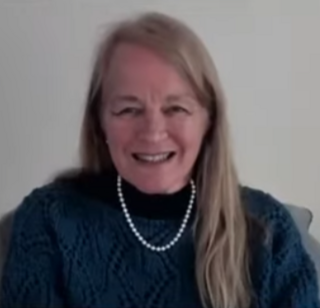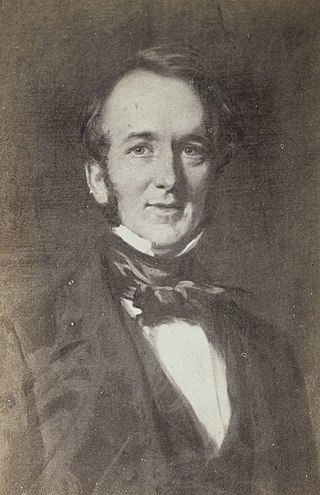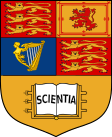
Eton College is a public school in Eton, Berkshire, England. It was founded in 1440 by Henry VI under the name Kynge's College of Our Ladye of Eton besyde Windesore, making it the 18th-oldest school in the Headmasters' and Headmistresses' Conference (HMC). Originally intended as a sister institution to King's College, Cambridge, Eton is known for its history, wealth, and notable alumni, known as Old Etonians.

Imperial College London is a public research university in London, England. Its history began with Prince Albert, consort of Queen Victoria, who developed his vision for a cultural area that included the Royal Albert Hall, the Victoria and Albert Museum, the Natural History Museum and several royal colleges. In 1907, Imperial College London was established by royal charter, unifying the Royal College of Science, the Royal School of Mines and the City and Guilds of London Institute. In 1988, the Imperial College School of Medicine was formed by merging with St Mary's Hospital Medical School. In 2004, Queen Elizabeth II opened the Imperial College Business School.

Stirling is a city in central Scotland, 26 miles (42 km) northeast of Glasgow and 37 miles (60 km) north-west of Edinburgh. The market town, surrounded by rich farmland, grew up connecting the royal citadel, the medieval old town with its merchants and tradesmen, the Old Bridge and the port. Located on the River Forth, Stirling is the administrative centre for the Stirling council area, and is traditionally the county town of Stirlingshire. Proverbially it is the strategically important "Gateway to the Highlands".
James Stirling may refer to:
A provost is a senior academic administrator. At many institutions of higher education, the provost is the chief academic officer, a role that may be combined with being deputy to the chief executive officer. They may also be the chief executive officer of a university, of a branch campus of a university, or of a college within a university.

Modern Railways is a British monthly magazine covering the rail transport industry which was published by Ian Allan until March 2012, and Key Publishing since then. It has been published since 1962. The magazine was originally based in Shepperton, Middlesex.
The president of Imperial College London is the highest academic official of Imperial College London. The president, formerly known as the rector, is the chief executive, elected by the council of the college and chairman of the senate. The position is currently held by Hugh Brady, who succeeded Alice Gast in August 2022.
A bailie or baillie is a civic officer in the local government of Scotland. The position arose in the burghs, where bailies formerly held a post similar to that of an alderman or magistrate. Baillies appointed the high constables in Edinburgh, Leith and Perth. Modern bailies exist in Scottish local councils, with the position being a courtesy title and appointees often requested to provide support to the lord provost or provost - the ceremonial and civic head of the council - in their various engagements.
There have been two baronetcies created for members of the Orr-Ewing family, both in the Baronetage of the United Kingdom. Both creations are extant as of 2010.

Alice Petry Gast is an American researcher, was the 16th president of Imperial College London, and sits on the board of directors of Chevron. Gast was named one of the top 100 "Modern Era" engineers in the US under the category of "Leadership" by the American Institute of Chemical Engineers.

Nick Lane is a British biochemist and writer. He is a professor in evolutionary biochemistry at University College London. He has published five books to date which have won several awards.
Aubrey Williams was a Guyanese artist. He was best known for his large, oil-on-canvas paintings, which combine elements of abstract expressionism with forms, images and symbols inspired by the pre-Columbian art of indigenous peoples of the Americas.
John Duncanson was a Scottish minister, one of the Roman Catholic clergymen who willingly converted to the Protestant doctrines at the Reformation. He was reputed to have lived to be nearly 100 years old. He was as the President of St Leonard's College, St Andrews in 1556, around the time that he accepted the reformed faith. He held this position until 1566. He was the minister at Stirling in 1560.

William James Stirling was a physicist who served as the first Provost of Imperial College London. He was appointed to this role in August 2013 and retired in August 2018.

Sir James Anderson was a British politician and manufacturer.
Ian Alexander Walmsley FRS is Provost of Imperial College London where he is also Chair of Experimental Physics. He was previously pro-vice-chancellor for research and Hooke Professor of Experimental Physics at the University of Oxford, and a professorial fellow at St Hugh's College, Oxford. He is also director of the NQIT hub within the UK National Quantum Technology Programme, which is led by the University of Oxford. He is also a Fellow of the Institute of Physics, the American Physical Society and the Optical Society of America.
Stirling is a Scottish name that originated in Stirlingshire, Scotland. Since prior to the Norman conquest the family held its seat in Stirling, Scotland.

Sir James Stirling, 1st Baronet of Larbert and Mansfield was a Scottish banker who served three consecutive terms as Lord Provost of Edinburgh.
Patrick Simson (1566-1618) was a presbyterian minster who served in Stirling during the reign of James VI of Scotland. Despite his opposition to Episcopalianism, he had the respect of king James and several of his court. He was born in Perth in 1556. He was from a prominent church family and was the son of Andrew Simson, minister of Dunbar. He was educated at St. Mary's College, St Andrews, graduating with an M.A. in 1574. He became a reader at Borthwick and completed his education at Bridgestock in England stopping there while intended for Cambridge as he met a gentleman who allowed him use of his library. He was admitted to Spott in 1577 and translated to Cramond in 1582. He was admitted to the vicarage there on 30 August 1586. He was translated and admitted to Stirling on 7 August 1590. He was presented by James VI on May 1591. When preaching before the King in 1598 he exhorted him to beware "lest he drew on himself secret wrath by setting up manifest idolatry." Immediately after the sermon his Majesty arose and "forbade him to meddle in these matters." He was a member of twelve out of fifteen Assemblies held prior to 1610. Simson was proposed by Assembly of 1606 "Constant Moderator" of Presbytery, but he lost to James Nicolson. He drew up a Protest to Parliament against the introduction of Episcopacy on 1 July 1606. He was chosen as Moderator of Conference at Falkland on 15 June 1608. Simson was offered a bishopric and pension by the King, but frequent attacks of disease broke down his constitution, and he died on 31 March 1618.









